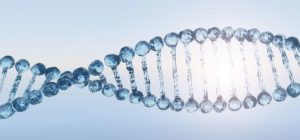Researchers have recently discovered a new peptide synthesis method. Keep reading to learn all about this exciting development.
RELATED: New Research Shows Red Wine And Chocolate Could Have Anti-Aging Benefits
In this article:
New Discoveries on Peptide Synthesis
What Are Peptides and What Do They Do?
Peptides are chains of amino acids. There are different kinds of peptides—from plant peptides to skin peptides.
They are an essential element to all living things because they make up proteins. Proteins, in turn, are catalysts of different biological processes.
The curious thing about peptides is they also require enzymes to regulate their formation and turn them into amino acids. Therein lies the mystery: how then were the first enzymes formed?
It’s a classic chicken and egg problem. A group of researchers, Dr. Pierre Canavelli, Dr. Saidul Islam, and Dr. Matthew Powner, recently published an article in Nature which sheds some light on it.
What’s New in Peptide Synthesis?
There’s always been an interest in determining how peptides first formed. However, most of the research is centered on amino acids rather than its precursors—aminonitriles.
Usually, aminonitriles need very acidic or alkaline conditions to turn into amino acids. The amino acids then need energy to make peptides.
Instead of going through this two-step process, the researchers discovered how to make peptides directly from aminonitriles! Unlike amino acids, aminonitriles already have the innate energy to form peptide bond formations in water.
Aminonitriles can actually synthesize peptides with greater ease than amino acids.
The researchers added hydrogen sulfide and ferricyanide to aminonitriles. This led to simple reactions which created peptides.
Their findings led the researchers to believe this kind of peptide synthesis could have been a component of early evolutionary life.
The elements they used to create the simple reaction are also present in volcanic eruptions which were likely present during primitive earth. This is the first time peptides have been formed by using only resources that could have been available during the early years of earth.
RELATED: More Sex Can Prevent Heart Attacks, According To Science
What Are the Applications?
Apart from shedding some light on the origins of life, these findings are also very useful in the field of synthetic chemistry. The amide bond formation is a key process in creating a variety of synthetic materials, such as pharmaceutical drugs and other bioactive compounds.
This new method is closer to natural biological processes which are quite different from the methods used in laboratories. Often times, laboratories require more reagents which can be more costly.
The researchers are continuing their work in peptide synthesis. They’re looking for more aminonitriles to peptide pathways.
They’re also diving deeper into its functional properties. Hopefully, their body of work will broaden our understanding of the role of peptides in the formation of life.
What do you think of these new developments? Let us know in the comments section below.
Up Next:
- How Regular Sex Can Strengthen A Relationship
- 7 Ways To Reverse Aging Symptoms And Signs
- HRT Hormone Replacement Therapy For Women: Frequently Asked Questions


